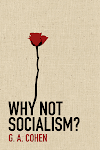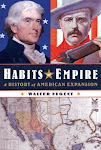 “Ronald Reagan and the Betrayal of Ordinary Americans”
“Ronald Reagan and the Betrayal of Ordinary Americans”
Since Ronald Reagan left office in January 1989, his influence and presence has loomed large over American political life. Conservative publications such as The Weekly Standard and National Review praise the 40th President at every opportunity, bestowing upon him an almost messianic air (ironic, given their disdain for the adulation expressed by Obama supporters). In the 2008 Republican primaries, the contenders were falling over each other in their attempts to show themselves as they tried to out-Reagan each other. During the election proper, even Obama spoke positively about Reagan’s legacy.
William Kleinknecht contends that this carefully nurtured image and reputation is a fiction. He argues that while Reagan’s presidency was indeed transformational, it is not in the ways his hagiographers contend (invigorating private enterprise, toppling the Berlin Wall, strengthening America). The author believes he had a wholly different legacy far more important and with a greater impact on America. Therefore,
“This book is borne of annoyance: a great bewilderment over the myth that continues to surround the presidency of Ronald Reagan. It gives voice to a vast swath of psychically disenfranchised Americans, millions of them, lumped thickly in the urban areas on either coast, who never understood Reagan’s appeal.”
The Man Who Sold The World focuses on Domestic Policy, and in fact explicitly does not discuss Reagan’s foreign policy – where, during the Reagan presidency, there were some undeniable beneficial advances, victories and successes. Whether or not these can be attributed to Reagan himself is debatable and not the subject of this book or review.
The structure of the book is quite straightforward: each chapter deals with a separate element of Reagan’s policies’ domestic impact. This includes the impact on Dixon, Illinois, as case study of the economic impact of Reagan’s presidency, but also his indifference to the ‘little-man’; politicians who were adversely and positively affected by Reagan’s presidency (Tip O’Neill and Senator William Promire for the former, deregulator extraordinaire Jim J. Tozzi for the latter), as well as providing a good, detailed explanation of the evolution of laissez-faire economics and its embrace by the right. A chapter about deregulation (“The looting of America”) is filled with depressing and infuriating facts to get a liberal’s blood boiling. In Kleinknecht’s view, deregulation seems to be the root of all Reagan’s evils: “Reagan changed the role of government from watchdog to lapdog without even bothering to consult the Congress”, which led to “two and a half decades of thievery wrought by Reagan’s financial deregulations.”
Kleinknecht has written a very passionate book aimed at debunking the tenacious myth of Reagan’s ‘brilliance’. Some are guaranteed to disagree with his position, but he does lay out a very compelling case to suggest that Reagan’s brilliance was one of PR and pageantry, rather than policy. The author argues that Reagan, while professing to be a conservative and standard bearer for traditional life and values, was actually anything but. Taking a pro-business path whenever it was an option, Kleinknecht explains how he actually betrayed most if not everyone who voted for him on a conservative-values basis, and ushered in an era of opulence, wealth and ostentation in Washington and US politics.
The book is exceptionally well written, and I found myself getting through chapters very quickly, not realising just how much I had read in each stretch. This makes a nice change from many political history books, which occasionally suffer from a dryness usually only found in deserts. The author’s feistiness is something that also helps the pacing of the book, but his attention to detail prevents it from turning into merely another anti-Reagan/Republican screed.
Drawing on plenty of interviews (including man-on-the-street quotes), not to mention exhaustive statistics and economic data, this book is incredibly informative and all of the author’s arguments are supported or substantiated with evidence (something I often feel that conservative pundits conveniently leave out, to their detriment). Kleinknecht has a very detailed-yet-inviting style, passionate without being too much of a polemic. Sometimes he comes across a little strong, which might put people off (such as his obvious dislike for everything produced by Hollywood and the music industry in recent decades), but on the whole this is a very enjoyable, engaging read.
A very well written, persuasive and compelling book, The Man Who Sold The World is recommended for anyone (like myself) who doesn’t understand the enduring myth of Ronald Reagan. The book brings his policies into the contemporary world, explaining how the roots of a lot (if not all) of today’s economic woes can be traced back (to varying degrees) to Reagan’s economic policy of hyper-capitalism, deregulation and tax-cuts for the rich.
Also try: James Mann, The Rebellion of Ronald Reagan (2009); Will Bunch, Tear Down This Myth (2009); Thomas Frank, What’s The Matter With Kansas (2005); Paul Krugman, The Conscience of a Liberal (2008)













0 comments:
Post a Comment